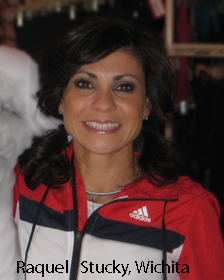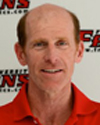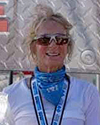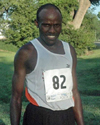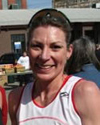The State of the State’s Running, 2017
In 2017 the 5K was again the most commonly run distance with 63 races held on certified courses for which we found results. A total of 48 races were run at all other distances. Because many races included more than one distance (typically a 5K paired with a longer race), there were 92 race events statewide over the course of the year.
These numbers were down substantially from previous years as 39 events either were discontinued or did not provide results in 2017.
After the 5K, the most popular race was the 10K with 19 races followed by the half-marathon with 14. After several years without a 12K, there were two new 12K races this year, the Wichita Run and the Hiawatha Hustle. Ten state age-group records were set at this rarely run distance at Hiawatha plus one at the Wichita Run. The state’s only 15K, the Goddard Tiger Trot, wasn’t held this year. The 811 8K in Wichita remained the state’s only race at that distance. There were only two 10-mile races, Lake Atwood (the state’s oldest race, now in its 45th year), and the Wichita Turkey Trot. Seven marathons were held this year and four ultras on certified courses, three of them including multiple distances.
By city, Wichita led the way with 31 events held on certified courses compared with 15 in suburban Kansas City (Kansas side) and seven in Topeka. No other city had as many as five. These numbers are also down from previous years.
In 2016 we revised the honor roll standards for many age groups. These are noted by the words “2016 REVISION” at the top of the age-group results lists. Our intent was to rationalize the standards from one age group to the next at a given distance under the World Masters Athletes age-grading guidelines and to allow more runners to qualify in certain age groups that have seen fewer qualifiers. In general, many older runners have qualified for the honor roll in recent years but relatively few younger runners (ages 12 to 50) have done so.
Over the past year we have reviewed results from more than 150 races – mostly from the 1980s and early 1990s – to identify runners who did not previously qualify for the honor roll but may be qualified under the 2016 revision. These results were in the files kept by Jack Crook, who maintained the honor roll for more than 20 years. We are continuing to review old race results, and we encourage runners who may have qualified to check the lists and let us know of any errors or omissions. The applicable races are shown at the “Races Researched” tab at the top of each age-group list. These are all races that were certified by USA Track & Field or previous governing bodies. If we no longer have the relevant race results, the runner may send us a copy of any documentation to verify eligibility (for example, finisher’s certificate, postcard notification, or results list).
We continue to encourage runners to seek out races held on certified courses, which should be noted in the race information along with the certification number provided by USA Track & Field. Course certification is often an indication that the race director is experienced and is more likely to have taken runners’ needs and interests into consideration.
We ask race directors to provide hometowns and exact ages for all runners in order to recognize state honor roll qualifiers. We also encourage race directors to seek assistance from local running clubs when planning events.
► Kudos to Trevor Darmstetter of Wichita for his efforts in certifying many new courses. He and his team have made it possible for runners to set state records or personal records at a variety of distances with the assurance that their times are valid.
► We note the passing of Tim Benham in December at age 88. Tim was an early pioneer among older runners. His name appears in the state honor roll 31 times at distances ranging from two miles to the marathon in age groups from 55-59 to 75-79. At one time or another he held 19 age-group records including an age-group 60-64 marathon record in 1989 that stood for seven years. He also tied for Kansas runner-of-the-year in 1989. Our thanks to Thom Wilkins for pointing this out.
Dick Lipsey, Steve Riley, & Gene Wee
